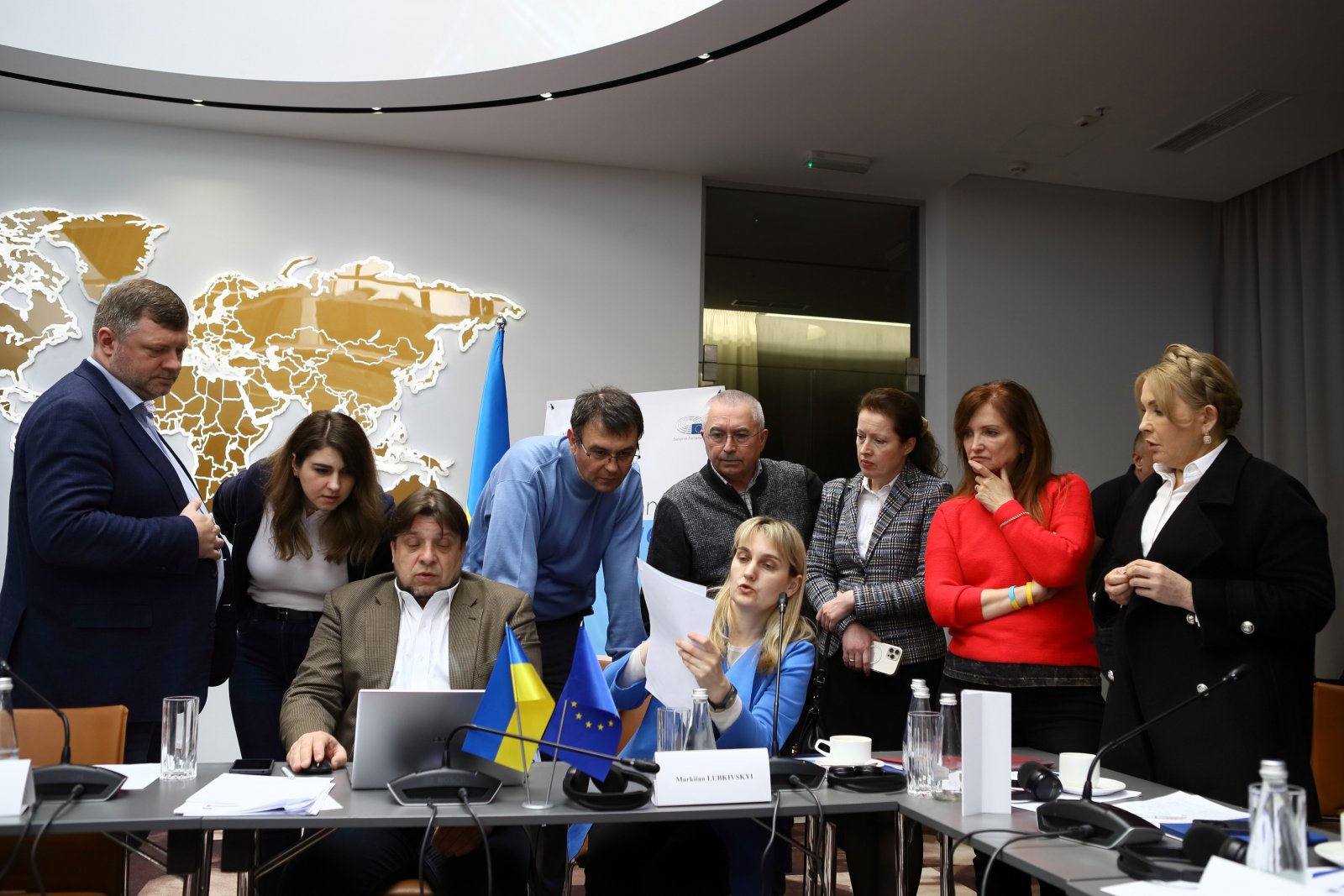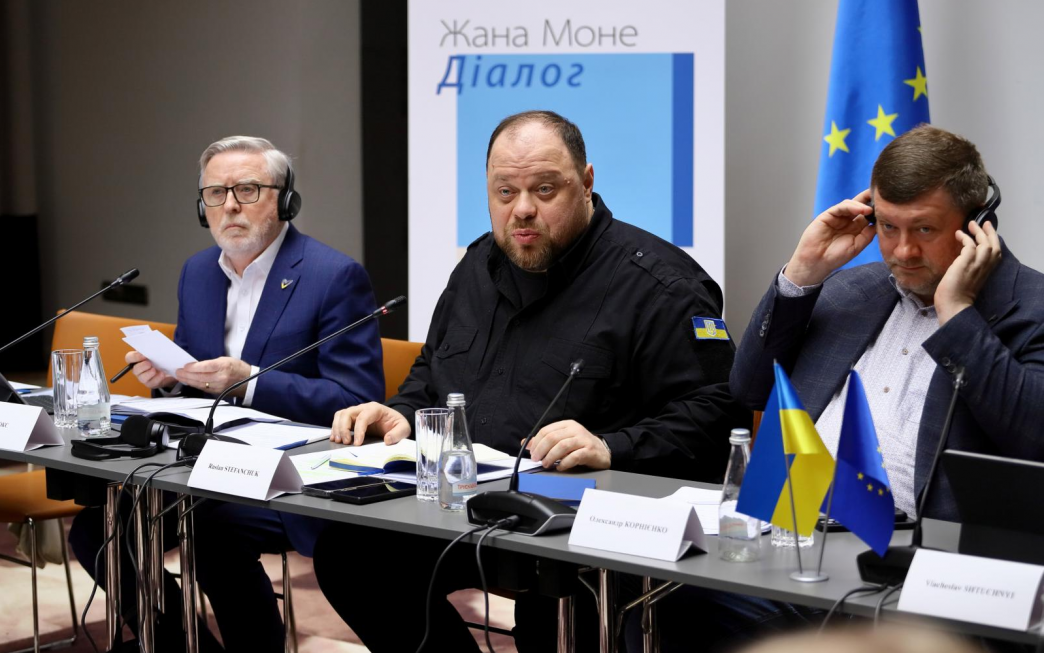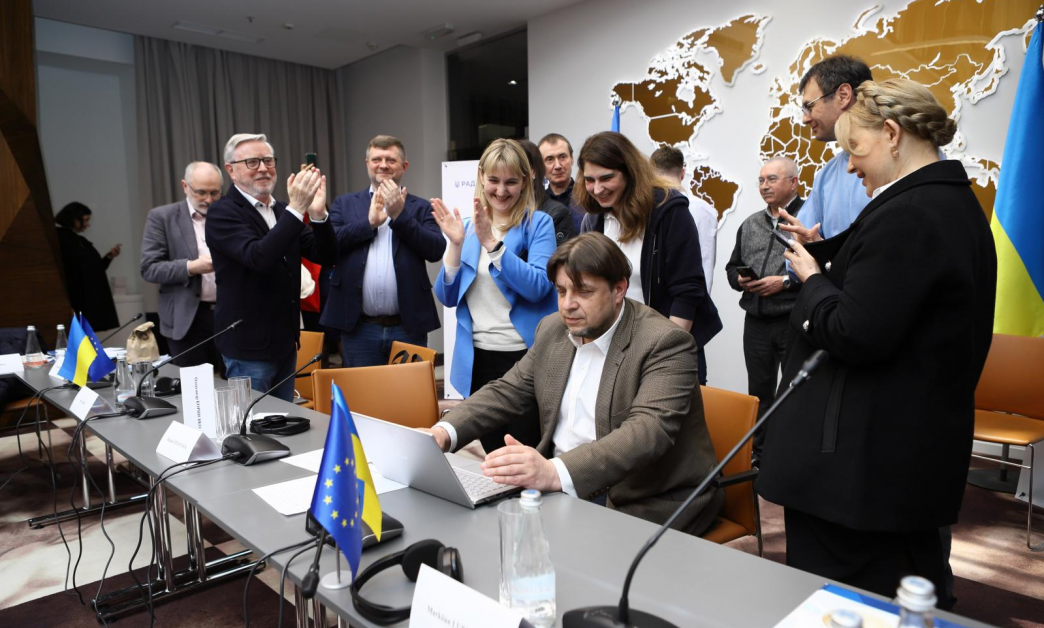
Participants of the 10th Round of Jean Monnet Dialogue discussing the conclusions document
pat-cox.png

Gathering 35 participants, including the entire leadership of the Verkhovna Rada and 19 leaders and delegated representatives of parliamentary factions and groups, participants reached a number of agreements that were signed by all participants. These included a commitment to begin drafting a special law to regulate specifics of the first post-war elections on the basis of the main principles of the current electoral code and under an open list electoral system. Additionally, the group agreed to renew their focus on parliamentary diplomacy, prioritizing the promotion of Euro-Atlantic integration. The final agreements also included commitments to advance a parliamentary Code of Ethics as well as legislation on the rights of opposition.
“I was greatly impressed at this JMD to see factions' capacity for consensus and compromise building. This is the moment to sit together and focus on the unity of the Parliament, and the leaders have shown clear capacity to do so.” - Pat Cox, former President of the European Parliament, co-facilitator of JMD
During the discussion on enlargement, Ruslan Stefanchuk, Speaker of the Verkhovna Rada, recognized a recent decision by the European Council to begin negotiations on Ukraine's accession to the European Union. “It opens a way to implement the country's strategic choice, the choice for which today our soldiers shed their blood and defend us from the Russian invaders,” Stefanchuk said.
The Speaker also emphasized the crucial role of the Parliament in preserving democracy during such challenging times. “I believe that we have come to a point where we need to make significant progress on the issues concerning the architecture of our work, on the issues of how the Parliament will align itself in the process of negotiations with the European Union, and most importantly, we need to reach an agreement on how to preserve our democracy in conditions of war.”
conclusion-doc.png

The three-day dialogue not only solidified achievements from past JMDs but also prepared a detailed roadmap for the future. This included agreeing on internal parliamentary procedures and mechanisms for adapting Ukrainian legislation to EU law, using quotas to include each faction and group in negotiations on EU accession and initiating coordination meetings between Parliament members and state bodies to consider consolidated lists of draft laws aimed at fulfilling Ukraine's international obligations. These specific actions and commitments are designed to strengthen Ukraine's Euro-Atlantic aspirations.
Looking to the future, the 10th JMD outlined the framework for the next meeting, anticipated to be held later in 2024. Holding these events regularly builds opportunities for dialogue and unity between key political forces in the face of unprecedented challenges for Ukraine. The insights and commitments garnered from this meeting will provide guidance and vital benchmarks as parliamentarians work toward systematic democratic transformations in Ukraine during a pivotal time when building consensus among politicians is difficult and crucial for Ukraine’s democratic future.
Author: Olena Bazylivska, Senior Program Officer, Ukraine
NDI's engagement with this program is implemented with support from the United States Agency for International Development (USAID) through the Consortium for Elections and Political Process Strengthening (CEPPS).
Related Stories:
Ukraine: Democracy's Front Line
Ukraine's Views on the War and Its Future
Collaborating for Inclusive Recovery in Ukraine
###
NDI is a non-profit, non-partisan, non-governmental organization that works in partnership around the world to strengthen and safeguard democratic institutions, processes, norms and values to secure a better quality of life for all. NDI envisions a world where democracy and freedom prevail, with dignity for all.


